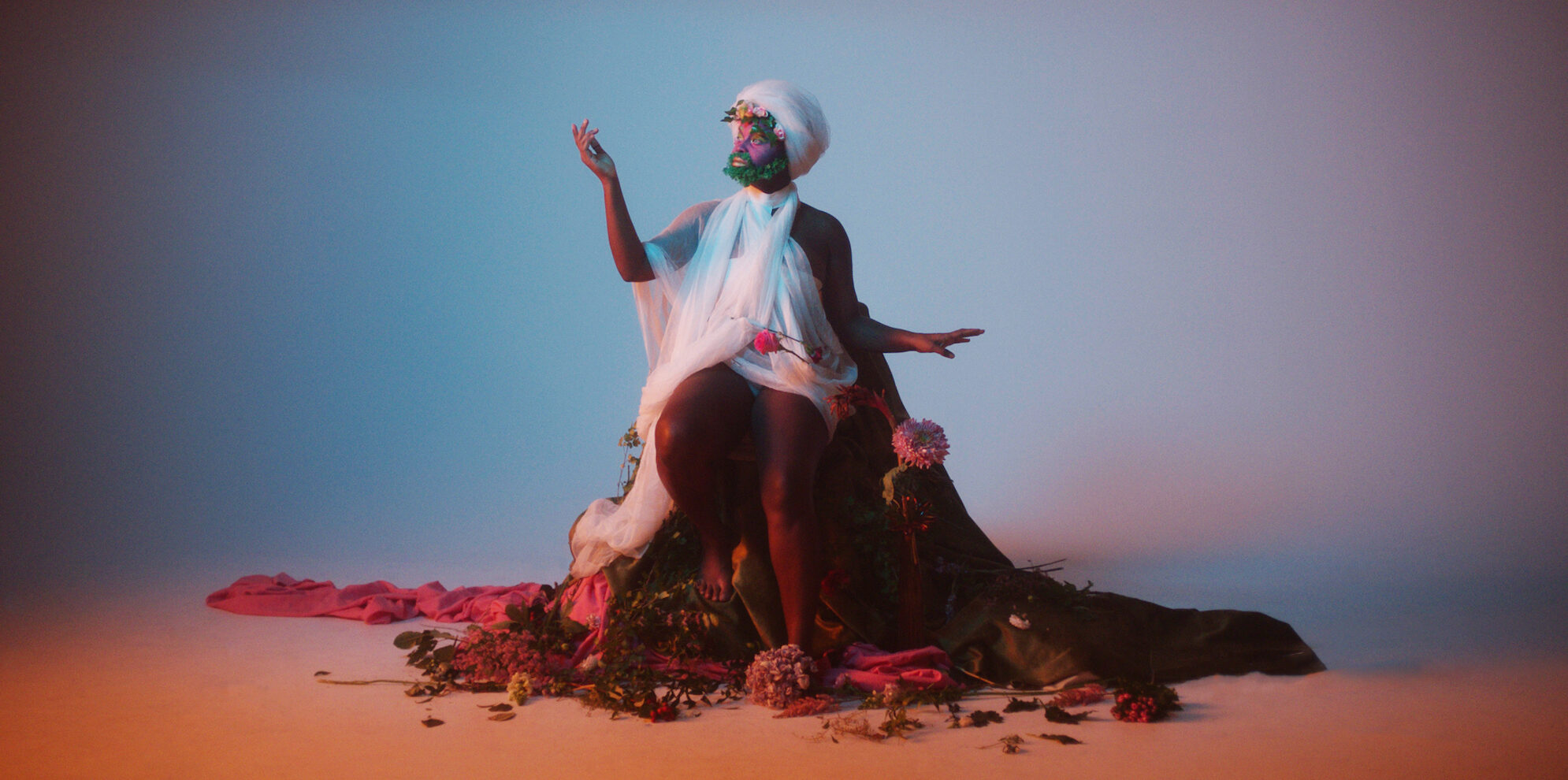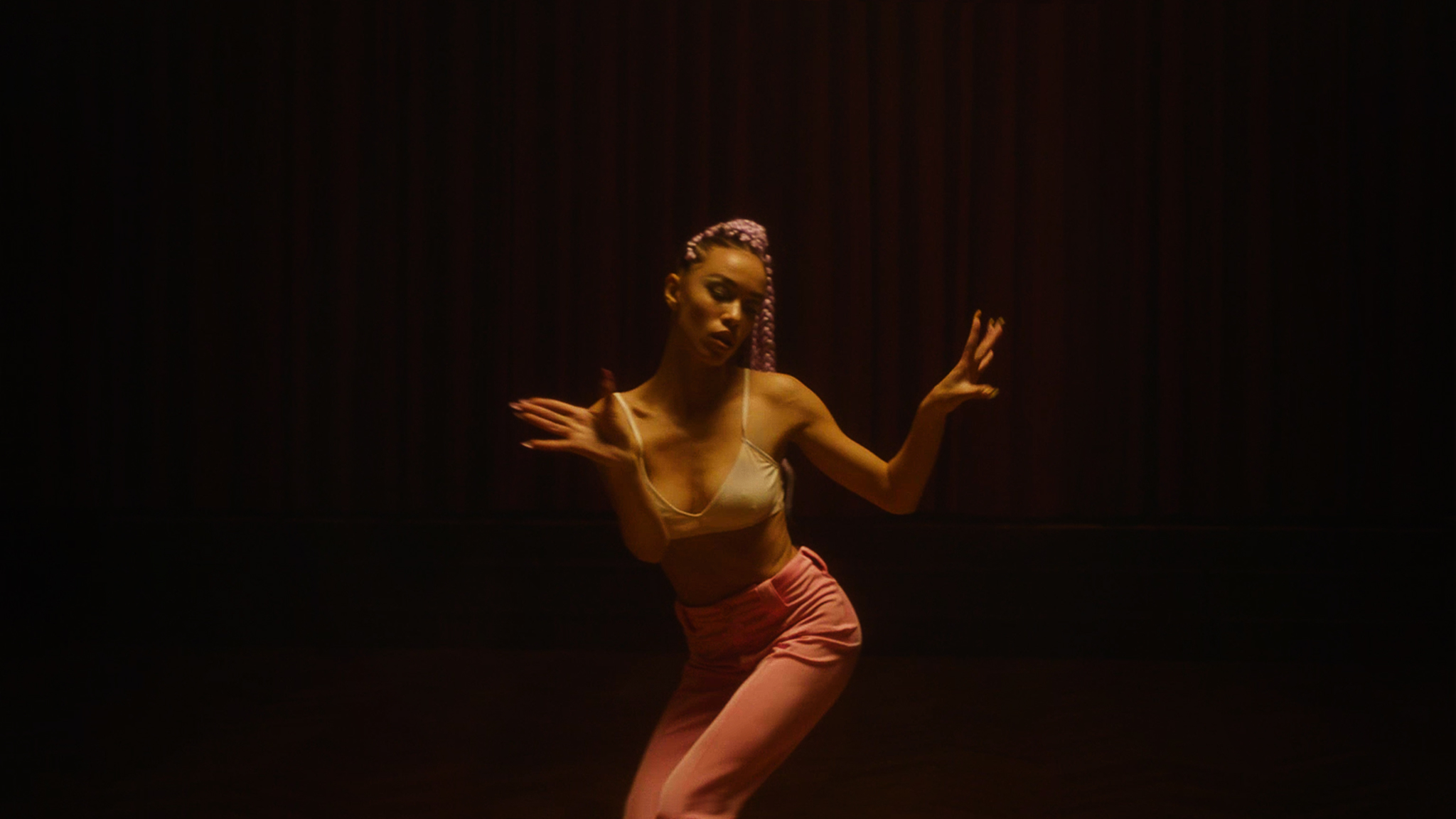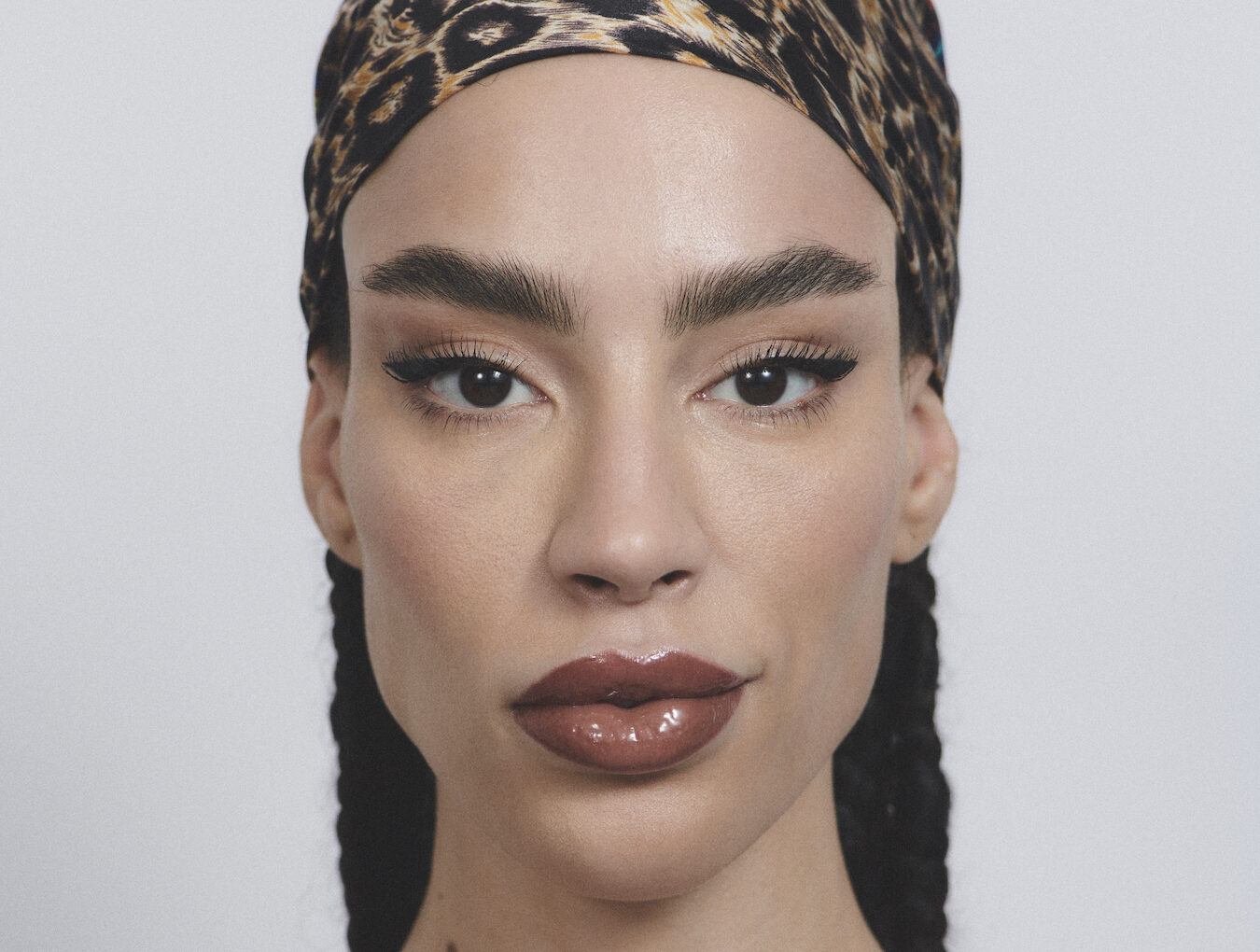Honey Dijon has checked the pulse of subculture and pronounced it dead. “There’s no such thing anymore because we have this thing called the internet.”
Coming up and of age in the city and spaces that birthed house music, the Chicago native has seen club culture move into the mainstream—with the dawn of superstar DJs, destination festivals and the digitisation of audio—and romanticising is not in her nature. “Everyone can be a DJ now,” she says matter of factly. “There’s so much mediocrity.”
But mediocre is not a word one could ascribe to Dijon. In addition to gracing the decks of seemingly every establishment in house music’s hall-of-fame, she’s collaborated with Kim Jones to conceive the soundtrack for LV’s runways, given lectures at world-renowned institutions, created her own fashion line, Honey Fucking Dijon, and fiercely advocated for Black, queer and trans rights. Since settling in Berlin by way of New York, Dijon has made herself at home in Berghain’s Panorama Bar—and both her prolific presence and the tracks she plays are a constant reminder of the too often overlooked roots of the genre. “If we’re talking about an underground dance movement, that time in history is gone,” she affirms. “It’s been colonised and commercialised, but it was created by queer people of colour.”
Known for setting the record straight in more ways than one, Honey Dijon speaks to Harriet Shepherd in the third of a three-part series presented by INDIE TV and Klarna.
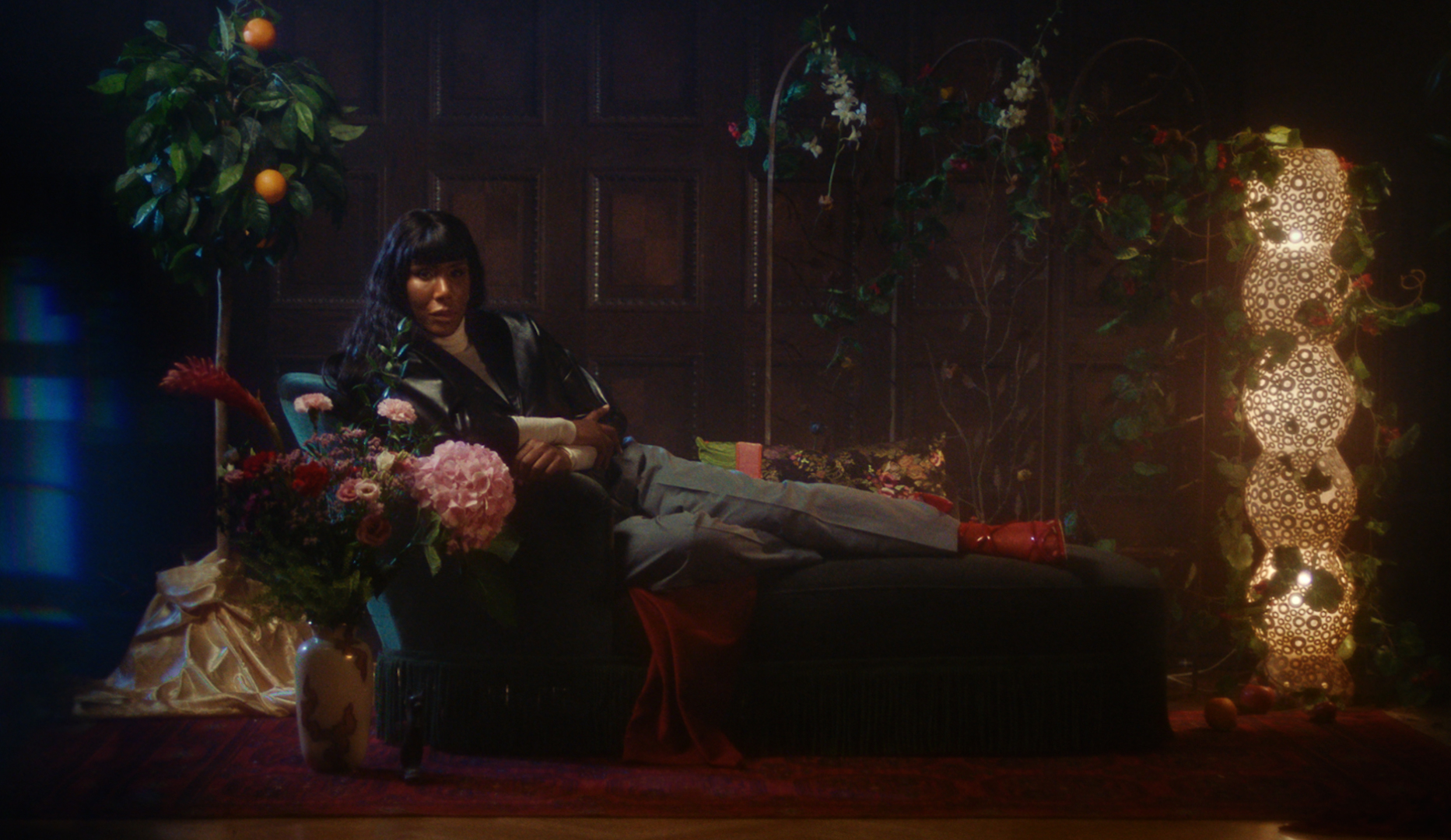
Harriet Shepherd: It’s evolved for better or worse in the four decades since, but house music started as a subculture in Chicago. In your eyes, what unified it?
Honey Dijon: I mean, it was just about community at that point. People lived that life; the clothes they wore, the clubs they went to—they were finding a community. Frankie Knuckles always said house music is disco’s revenge. Disco Demolition Night was July 12th 1979—Steve Dahl burning records in Comiskey park, basically just white radio DJs really being frustrated that disco was taking over the airwaves. That was sort of the birth of house music. These people weren’t really aware that they were creating a cultural movement that would ignite around the world. The early house records came in 82’, 83’ but actually, even though it took a long time to come over, that music was still being played at Black, gay and Latin underground clubs. People were just living their live, and like any subculture you’re finding your community.
HS Do you remember the first time you felt there was a disconnect from that—where you felt the culture being appropriated?
HD I would say when I started to feel it more was when I started living in New York. You had all these blogs, and I don’t want to throw anyone under the bus that has supported my career, but there were a ton of white people writing about dance music—mostly white men writing about dance music. They tended to focus on two central figures in Chicago, and that was Frankie Knuckles or Ron Hardy, or Larry Levan in New York, when there were so many more players in the game. Just like any subculture, those were just the few who became really famous. When you have a subculture being presented through a white heteronormative lens, they’re only going to know so much, and they’re only going to write from their experience of that culture. I felt through my music and my art that it was important for me to continue these conversations and amplify voices that may not have been heard or that people weren’t aware of. When I started to DJ in Europe more, I realised that this culture had evolved—I mean of course that’s inevitable, and each generation is going to bring whatever’s relevant to them—but it’s gone from community to entertainment. The superstar DJs, the clubs—it’s become a billion dollar industry. The disconnect is that the people who created this culture are often left out of line-ups, left out of a movement which they started.
HS Do you think this is changing?
HD No. Until we start having more people of colour that are on record labels, that are creating festival line-ups that are involved in putting on people that aren’t Instagram DJs, that aren’t friends of theirs or people they can get high with. I understand that it is the music business. I’m not naive… I know that in order to move tickets, you’re going to have to have artists that draw numbers, but also balance that out with a lot of people that were part of this movement from the beginning.
HS Do you see more subcultural movements pushing that on a smaller scale?
HD There is no more subculture. But I think that people like myself or other people are raising awareness and voices of how this culture began and what it’s come to. In a funny way, I think the pandemic really reset things, because it was going so fast and there were so many DJs, and so many mediocre DJs. The music industry forgot it was about music and became about personalities. Very little has changed—I see very few women of colour on line-ups, there are very few queer people of colour on line-ups, and often when they do try to tick boxes it becomes an exercise in ‘we need to put this on so that people can’t say we are this and that.’ It comes more from being politically correct than actually supporting these people.
HS Yeah, like filling a quota.
HD Like filling a quota, exactly.
HS And people are more scared of being called out for doing something wrong than actually doing wrong…
HD Exactly, they don’t want to be a part of call out culture.
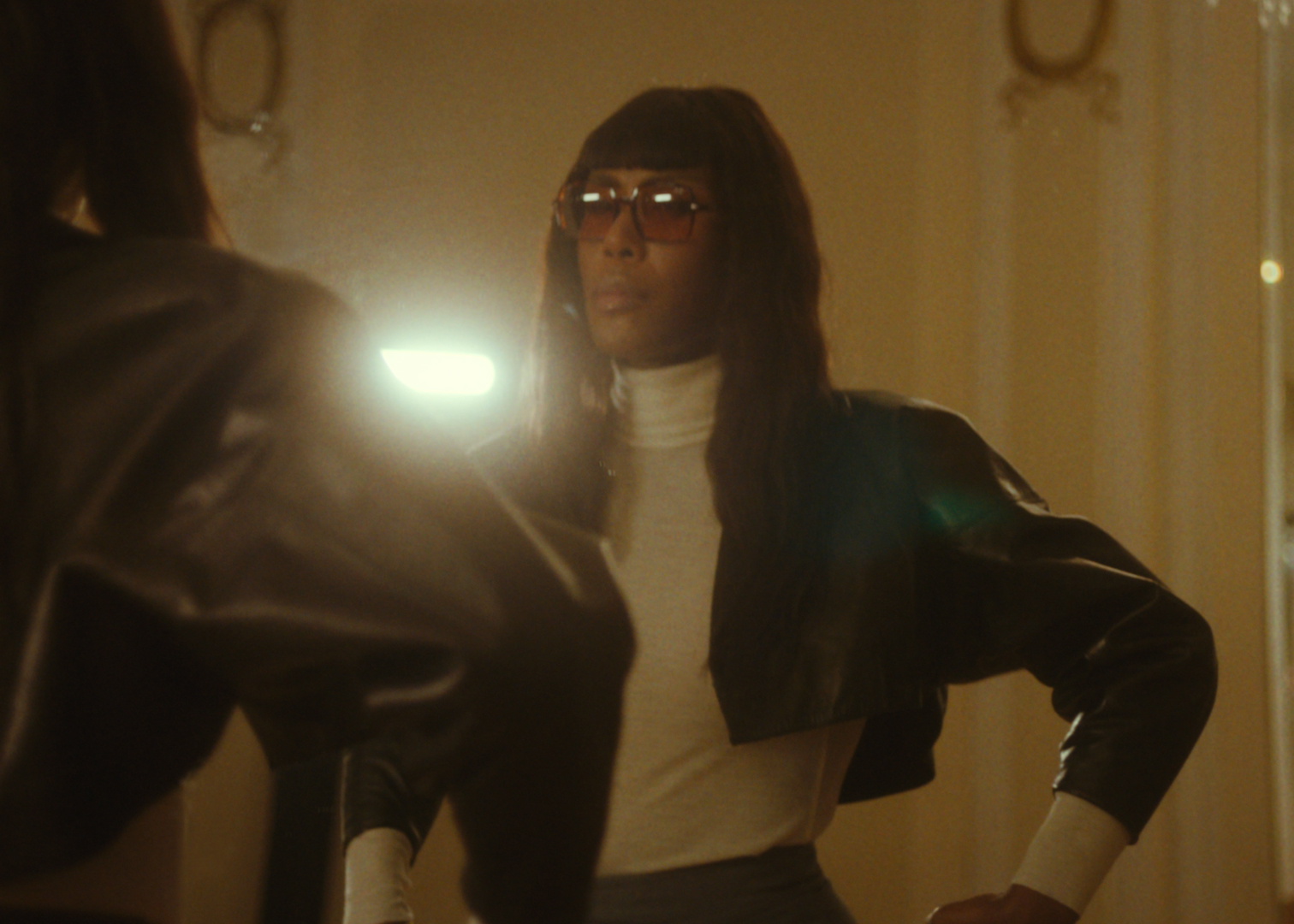
HS A lot of clubs, collectives and labels didn’t take a clear stand with Black Lives Matter this year because they consider themselves “not political”. Did you feel disappointed with the way institutions built off the back of Black music handled themselves?
HD Well you know the problem is… I mean now I think we’ll see what the real agenda is. Honestly we’re just so new into all this awareness in the last couple of years. I think I owe a lot of my success to the #MeToo movement, and to the Black Lives Matter movement, and I hope this isn’t just a trend for people. I hope this is a real awareness and change that’s going to happen, but I think it’s too early to tell. Once things get back to some sense of normality, we’ll see if there’s something for me to be disappointed about, or if there will be continued conversation.
HS For sure. The phrase ‘safe space’ is overused, but I see people having to re-evaluate spaces they formerly felt safe in.
HD Well, they created their own spaces to feel safe in, but still when you talk about the industry the question that I’m hearing is we’re still asking for safe spaces. Why are we asking heteronormative white men for inclusion?
HS I also don’t want to overlook how important these IRL spaces are—historically and still today, they’re about so much more than partying for so many people. And that physical togetherness has disappeared this year, that’s been consequential.
HD Of course. There are no safe spaces anymore just for health reasons alone. We are living in a moment where people can’t dance and people can’t sing together in a communal sense. So what do you think is going to come from that? People are going to find some way to either self-medicate or escape or release in some different way. This is human nature. We are communal creatures by nature—music is a part of the universe by nature. When you take that away from people, how are they going to cope with the everyday realities of stress? Not everybody is meant to sit behind a computer, and not everybody wants to be in finance and part of the capitalist cog. We need artists and we need people to question things—and we need music. Why is house music so demonised when Wall Street go to hookers and use blow? And government officials…I mean come on.
HS The connotations and context of DJing have changed so much since you started—how do you position yourself in relation to that?
HD I think one of the really great things about what I do is I’ve never really compromised how I play or what I’ve said as an artist. Whenever I ask other DJs why they want to be a DJ, they say ‘Oh, you know, I want to have a headlining slot—we need more female DJs in headlining slots’ and I’m like ‘well why?’ When I started DJing, I never imagined this kind of lifestyle. I loved the craft and art of DJing and sharing music with people. And I loved the fact of getting a community of people to dance and celebrate together. I get why they say they want more women headlining, because they want to see more representation of themselves, but you’re still asking for a seat at the table instead of creating your own thing. For me, I don’t necessarily have to be the no.1 DJ in the world, but I would like to be a consistently working artist, consistently inspiring people. Instead of being on someone else’s platform, I’m creating my own. And so I think that should be the goal. You can’t be everything for everybody. You know it’s like putting Sade at an EDM concert. They would think she sucks—one of the best selling artists in the world, but they would think she’s complete bollocks, you know what I mean? I’ve always modelled myself on the artists I’ve lived for like Grace Jones or Sade—just consistently doing great work and consistently inspiring people.
HS And people do make space for that I think.
HD Well you create your own space. I always say—it’s better to have your name on the door than the invitation.
HS Purely on a financial level, Berlin is a good place to create that space—it’s still possible to do things in a grassroots way.
HD Yeah, there’s a bit of the wild wild west here—you can still create something. In New York, real estate is too expensive and things are more tightly regulated. There’s definitely a lot more smaller queer parties happening here—from your Herrensaunas to your Floorgasms. Floorgasm has more people of colour, so I’m definitely starting to see it go back to being—in this generation’s way—more underground. There are more Black female DJs like Ash Lauryn and Sippin’ T from the UK, and in the US too there’s a couple of trans DJs like Jasmine Infiniti and QuestionMark, so I’m really starting to see that people are creating their own spaces again that are nothing to do with what’s popular.
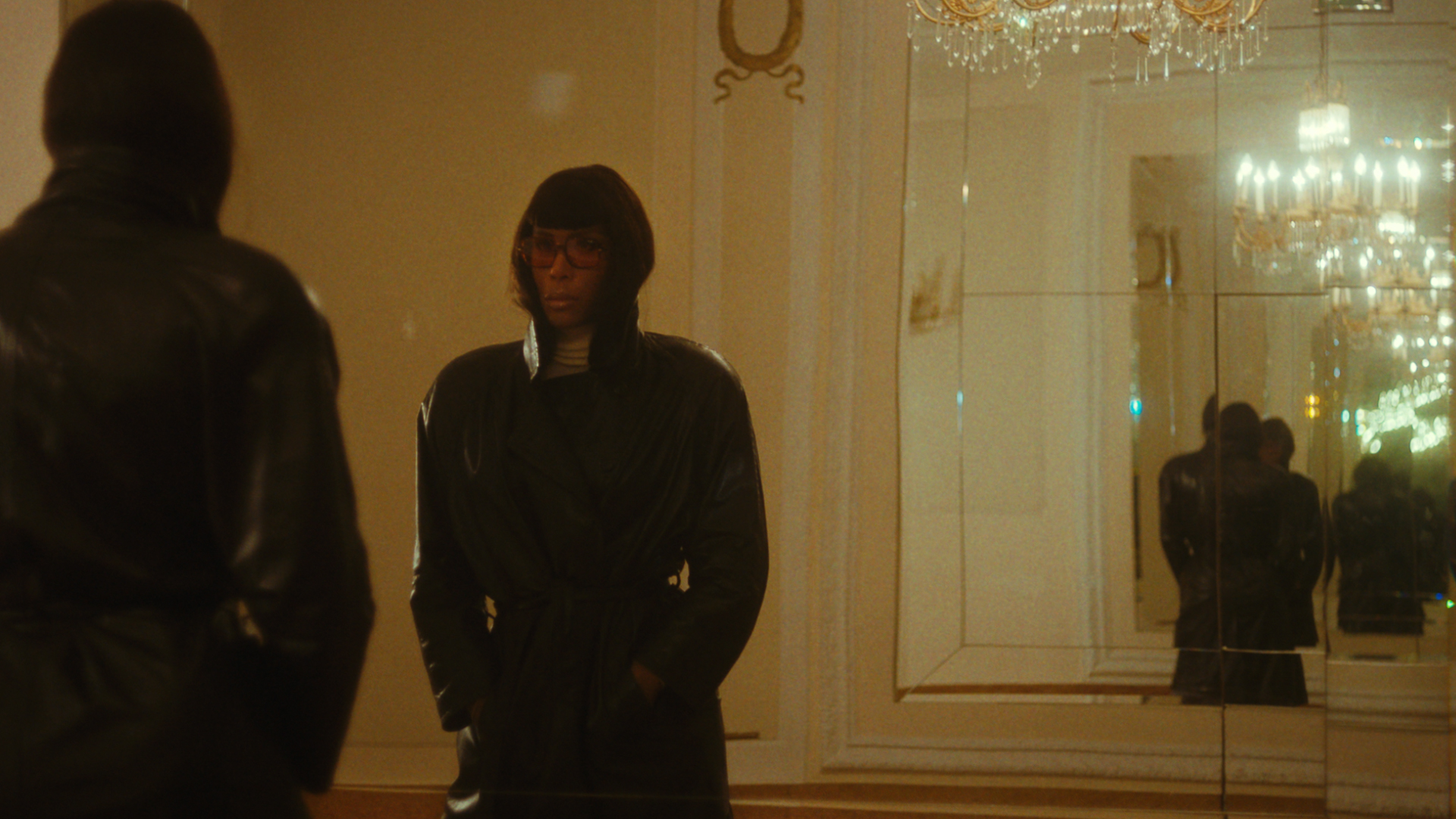
HS Have you been back to the US at all this year?
HD No, I’m going for the first time next week after a year.
HS Does it still feel like home to you?
HD No. I never want to live in the US again. Never. No desire for that lifestyle anymore. I don’t want my life to be about competition.
HS Do you see Berlin as your forever home?
HD No, but what is forever? It’s my now home [laughs]. I can’t predict what life changes are going to happen for me. But as far as being in Europe, I can’t think of any other place where I would want to be at the moment. I had contemplated moving to the UK, but the way the pandemic’s been handled and Brexit, it’s just a mess. It’s really sad because I love the UK and I love London and I love being there, but I just don’t want to be in a chaotic place anymore. And it’s so funny I never thought that I would not need a big city in my life. But I feel that social media has changed the dynamic of our cities, the people that inhabit our cities…
HS In what way?
HD Places have become so gentrified that it’s pushed artists out and it’s pushed marginalised people out. Our cities now are tailored. Everything is so… what’s the word? You know all these artisanal pizza places and artisanal coffee places, it’s not moving culture forward, it’s consumerism. All of our cities are just consumerist places—and that goes from entertainment down to what you eat, how you live your life, and everyone has great taste and great style. That’s very safe for me, that doesn’t push the needle forward. And I don’t mean that in terms of a physical thing, I mean that in terms of mental safety. We are all pawns of advertising, all of us. And I just realised that Instagram—they figured out a way instead of just selling products they’re selling people. My instagram feed looks like an infomercial of people. They found a way for us to sell ourselves.
HS It’s created a toxic environment for many people, but do you think in light of lockdown and in terms of building community, that it still has its value?
HD I can’t speak for other people, I can only speak from my perspective on it, I think everyone approaches all of these platforms from their own needs and perspectives.
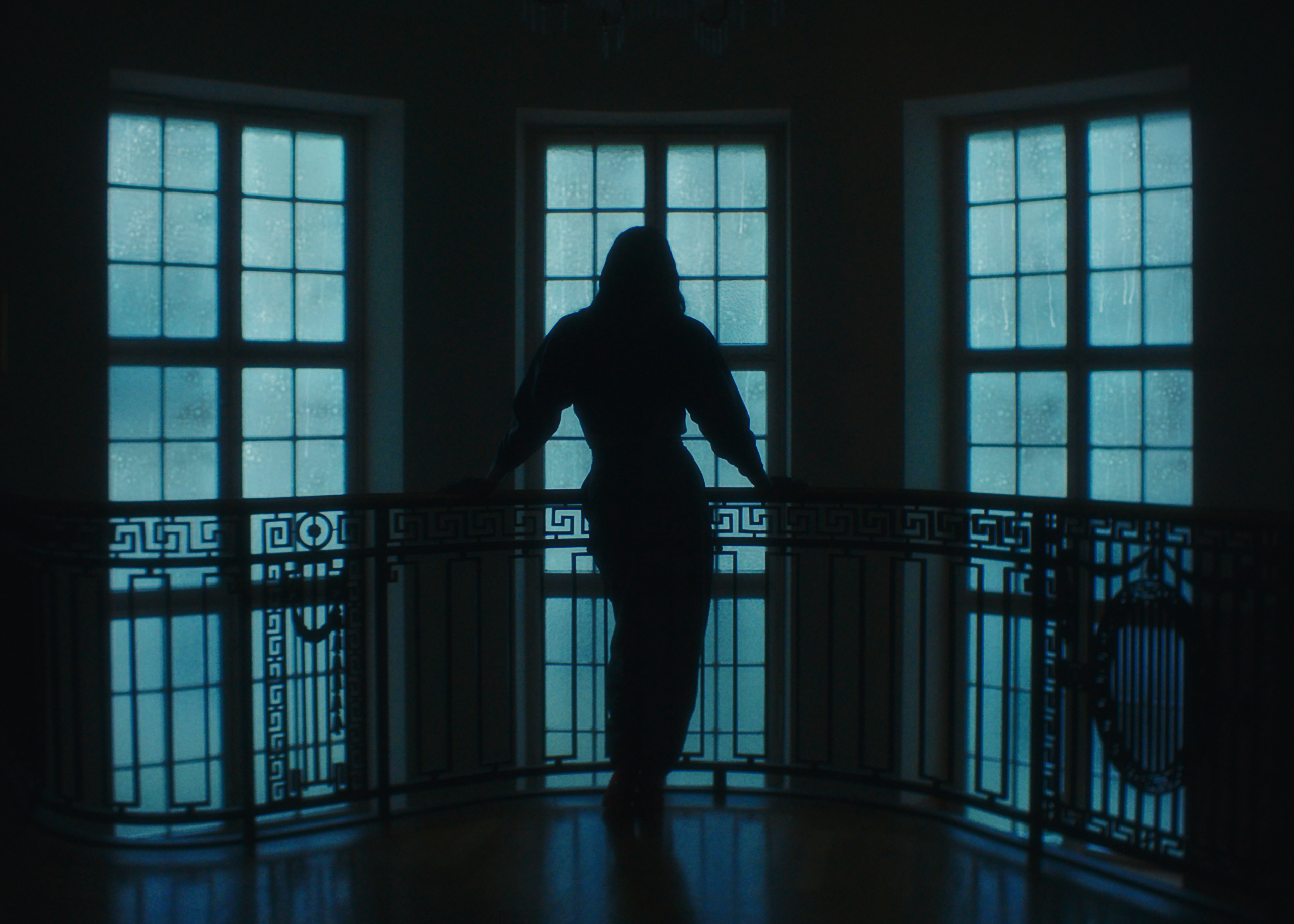
HS What’s your approach?
HD I use it as a tool. I’ve been able to connect with heroes of mine that I wouldn’t have been able to otherwise. A lot of collaborations have been born out of a DM. It’s about how you approach it—I don’t get myself worth and validation from it. If you look at my Instagram, it’s all about art, music and fashion. Some posts get a lot of likes, some posts get 10, but I don’t break down if it gets 10. I’m a very visual person, and for me it’s a great way to keep the conversation going with the community that I have built, but I think it depends on what you get from it. This generation has lost patience because everything is so quick. I remember when I read a magazine from cover to cover and just sit with that information. I had to wait four weeks for the next issue, and I got to digest and come up with my own conclusions—now I feel like everything is so quick that you don’t even get a chance to process information.
HS It’s like misinformation overload.
HD A friend of mine said today that with social media, human beings make 35,000 choices a day—we weren’t built that way. It’s the same with the music: 25,000 digital tracks come out weekly. There’s no quality control, and if you are working DJ you have to go through so much. If a record is super huge it’s probably because it’s been PR’d to death and it’s someone else’s agenda and everyone knows it. It’s so interesting for me, I get more reaction from playing classic house records than music that is out today, because there was song-writing and instrumentation and there was musicality and there was emotion. It wasn’t functioning dance music—no disrespect to people who make whatever music that they like and love—but it wasn’t functioning instrumental dance music.
HS Offline then, what makes you feel most validated?
HD Well I’m an adult, I’ve gone through all that shit with finding validation outside of myself. I think for me it’s about giving myself the love that I’m looking for from other people. It’s nice when people like what you do and like who you are, but I think it’s more important to like yourself first and foremost and stop outsourcing your happiness. People change their mind, people fall out of love with you, people die, friends come and go, lovers come and go. So you really have to be ok with yourself. I’m not saying I’m not human and I’m a robot, but I really had to stop getting my validation from complete strangers. Like literally complete strangers. And algorithms. Why are you so worried about what people think of you, when most people don’t know what they think about themselves.
Talent HONEY DIJON
Direction HARUN GÜLER
DP LEANDER OTT
1ST AC GREGOR CUNNINGHAM
Gaffer SERAFIM GUSEV
Set design AMY BRANDHORST
Styling RACHAEL RODGERS
HMU SUSANNA JONAS
HMU assistance MAI ANH RUDOLPH
Editing JANNIS GREFF
Colouring @DAVIDSEULCOLOUR @BENEDIKTEDGAR
Music @IAMEEPH
VFX artist CHRISTOPH LOHR
Sound design & re-recording @TI.ME.CO.DE
Production ADRIÀ PAITUVI, PIA AHLERT
Production assistance SOPHIE POWER, CLAAS HEDTFELD
Location scouting PLUSH74
Location MEISTERSAAL

